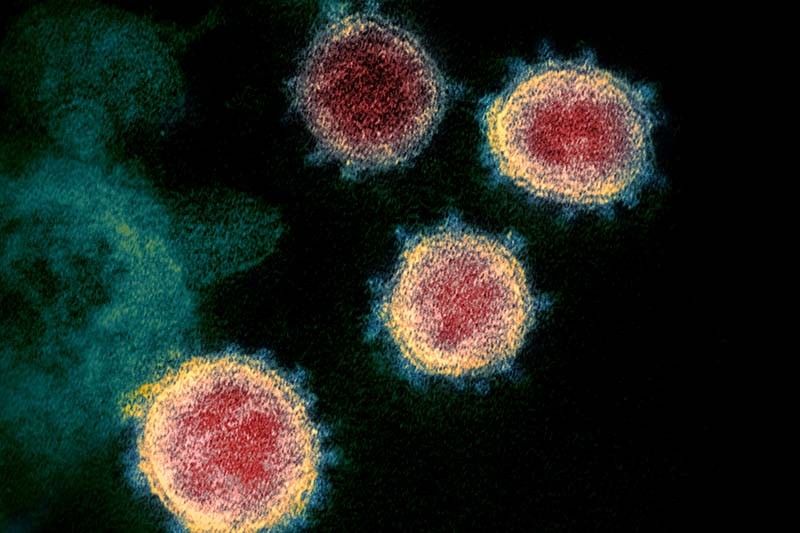DOH: Pfizer won’t conduct clinical trials of COVID-19 vaccine in Philippines

MANILA, Philippines — American pharmaceutical firm Pfizer has no plans of conducting clinical trials of its COVID-19 vaccine candidate in the Philippines, the Department of Health said Monday.
In a briefing, Health Undersecretary Maria Rosario Vergeire said there were no commitments yet made during the government’s meeting with the US drug maker last Friday.
“We just had to explain to them our regulatory processes,” Vergeire said.
“They gave information that they won’t conduct clinical trials in the Philippines because they are well advanced already with their Phase 3 clinical trials,” she said, adding government officials were told that the Phase 3 clinical trials of Pfizer’s candidate vaccine may be done by October.
The health official said most of the discussions during the meeting focused on pre-ordering of the potential vaccines and the Confidential Disclosure Agreement. A CDA contains the agreement between the vaccine manufacturer and the Philippines and details about the products.
Phase 3 clinical trials are large-scale testing on thousands of people to check the safety and efficacy of vaccines. It is an essential phase before receiving regulatory approval.
The government previously said the Philippines was scheduled to start the clinical trials of Sputnik V, Russia’s coronavirus vaccine, in October. Negotiations with Russia are still ongoing, with the Philippines’ vaccine expert panel seeking clarifications on the documents submitted by Moscow.
Meanwhile, five hospitals have been identified as sites for the planned clinical trials of the vaccine candidate produced by Sinovac Biotech Ltd although talks with the Chinese vaccine manufacturer are still on track.
More vaccine talks
Vergeire said discussions with other vaccine developers continue as the country seeks to source COVID-19 vaccines to fight Southeast Asia’s worst outbreak.
She said the Department of Science and Technology has a scheduled meeting with CSL, which is developing a coronavirus vaccine with the University of Queensland in Australia. The University of Queensland is currently undertaking a Phase 1 clinical evaluation of its vaccine candidate.
Vergeire also said the CDA of Moderna—the first company in the US to conduct a Phase 3 clinical study of a potential COVID-19 vaccine—is being studied.
“Once these CDAs are finalized, we can move forward for further meetings to finalize our agreement with them,” she said.
The country’s confirmed coronavirus cases reached over 237,000 as of Sunday.
Pharma giants Sanofi and GSK said on July 29, 2020, that they have agreed to supply Britain with up to 60 million doses of a potential COVID-19 vaccine. The agreement covers a vaccine candidate developed by France's Sanofi in partnership with the UK's GSK and is subject to a "final contract."
This thread collects some of the major developments in the search for a vaccine to ease the new coronavirus pandemic. (Main photo by AFP/Joel Saget)
As negotiations towards a new pandemic treaty pick up pace, observers warn of watered-down efforts to ensure equitable access to the medical products needed to battle future Covid-like threats.
Shaken by the pandemic, the World Health Organization's 194 member states are negotiating an international accord aimed at ensuring countries are better equipped to deal with the next catastrophe, or even prevent it altogether.
The process is still in the early stages, with the aim of reaching an agreement by May 2024.
But critics warn that revisions being made to the preliminary negotiating text are weakening the language -- notably in a key area aimed at preventing the rampant inequity seen in access to vaccines and other medical products during the Covid pandemic.
"I think it is a real step backwards," Suerie Moon, co-director of the Global Health Centre at the Geneva Graduate Institute, told AFP. — AFP
Africa's first mRNA vaccine hub is ceremonially launched on Thursday to acclaim from the UN's global health chief, who hailed it as a historic shift to help poor countries gain access to life-saving jabs.
The facility was set up in the South African city of Cape Town in 2021 on the back of the success of revolutionary anti-Covid vaccines introduced by Pfizer/BioNTech and Moderna.
"This precious project... will bring a paradigm shift in addressing the serious problem we faced, the equity problem, during the pandemic, so (that) it's not repeated again," World Health Organization (WHO) head Tedros Adhanom Ghebreyesus tells a media briefing to mark the inauguration. — AFP
China has approved its first locally developed messenger RNA (mRNA) vaccine against Covid-19, its manufacturer said Wednesday, months after the relaxation of strict Covid-zero regulations sparked a surge in cases.
The vaccine, developed by CSPC Pharmaceutical Group Ltd, has been approved for "emergency use" by Beijing's health regulator, the company said in a statement.
It showed high efficacy in a trial in which it was used as a booster shot for people who have been given other types of vaccines, the company added, without offering further details. — AFP
COVID-19 vaccine maker Novavax raises doubts about its ability to continue its business, announcing plans to cut spending after struggles in rolling out its coronavirus jab.
Shares of Novavax plummeted 25 percent in extended trading, after the company reported fourth-quarter earnings that missed analyst estimates.
While the firm should have enough money to fund operations, the situation is "subject to significant uncertainty," it says in a statement. — AFP
The protection against Covid-19 from being previously infected lasts at least as long as that offered by vaccination, one of the largest studies conducted on the subject says.
Ten months after getting Covid, people still had an 88% lower risk of reinfection, hospitalisation and death, according to the study published in the Lancet journal.
That makes this natural immunity "at least as durable, if not more so" than two doses of Pfizer or Moderna's vaccines, the study says.
The authors nevertheless emphasized that their findings should not discourage vaccination, which remains the safest way to get immunity. — AFP
- Latest
- Trending
































